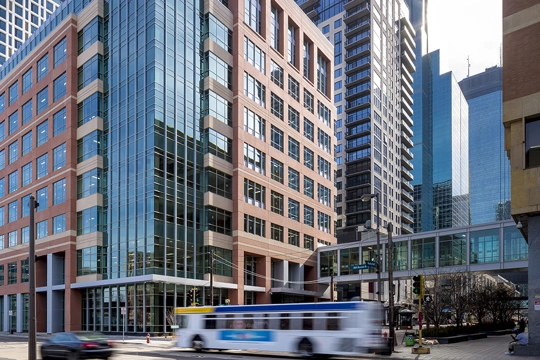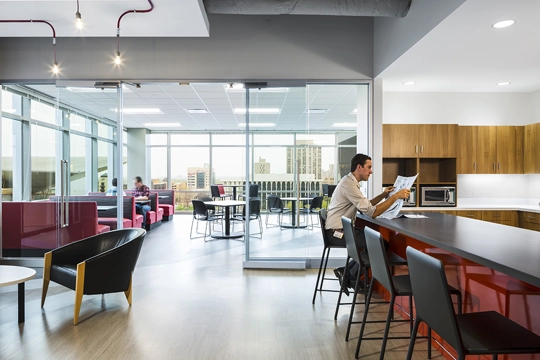
Xcel Energy @ 401 Nicollet
Project Type
Office
Size
222,000 square feet
Completion Date
April 2016
Project Location
Minneapolis, MN
Opus Office
Minneapolis
Consolidating Operations While Increasing Vitality of Downtown Minneapolis
Located directly across the street from Xcel Energy’s corporate headquarters, 401 Nicollet was the perfect location for the company to develop a second office tower and create a two-building campus in downtown Minneapolis.
With the site chosen, Xcel selected our team because of our extensive experience in the office sector and prior work on Nicollet Mall.
Developer
Opus Development Company
Contractor
Opus Design Build
Architect
Opus AE Group
Interior Designer
DLR Group
Project Team

Vice President, Architecture

Jeremiah Cunningham
Senior Project Manager

Craig Anderson
Senior Superintendent
Related News

MNCAR Profile: Opus’ Design-Build Model: Brokers and Their Clients Can Rely on Certainty of Outcome in Their Build Out
In this MNCAR profile article, Matt Rauenhorst talks about our ability to provide brokers and their clients with certainty of outcome on each project.
Read more
Amenitize: Creating an Appealing & Convenient Workplace
Unique and convenient office amenities create the environment today’s employees' desire. The right mix of amenities directly supports employee recruitment, satisfaction, retention and productivity.
Read more


